A year ago, Reliance Jio was only known as a company run by India's richest man Mukesh Ambani. But things have drastically changed since.
Practically every mobile user in India has heard of Reliance Jio or at the least enjoyed the perks of the new telco's foray into the country's telecom industry. Reliance Jio holds the record of being the fastest growing technology company in the world, and it beats world-known companies like Facebook and WhatsApp.
Reliance Jio needs no introduction as it has garnered 100 million subscribers in the short duration, and continues to grow at a faster pace than any of its rivals – Airtel, Vodafone, Idea Cellular and BSNL. It added seven customers every second reaching 100 million customers in just 170 days and more than 130 million customers enjoy the perks of Jio's 4G LTE network.
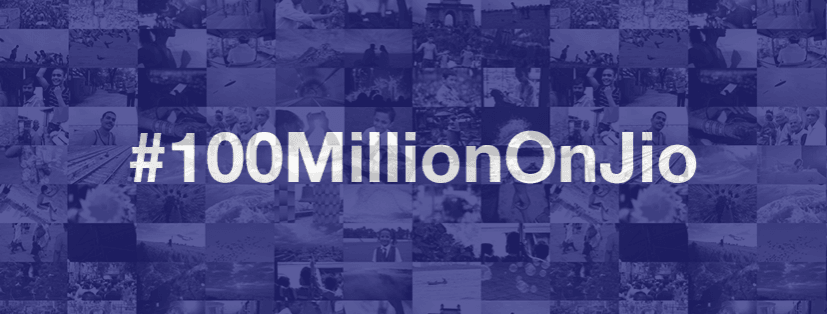
People in the rural and urban India have learnt of Jio's achievements over the past year, and the impact is clearly seen with the changing trends of the industry. If it wasn't for Jio, we'd still be paying for calls and remain stringent with 4G internet on mobile.
But that's one of many things Jio did for mobile users in India over the past year. Let's take a look at how efficiently the company delivered on its promises despite the rising challenges from rivals.
Reliance Jio is nothing short of a "knight in shining armour" for those who are happily enjoying 1GB 4G data on a daily basis and free voice calls.Reliance Jio is the first telecom operator to make voice calls free to all networks. Let's not forget the initial spats with Airtel, Vodafone and other telcos for not releasing sufficient PoIs, which resulted in crores of calls dropped every day.
While Jio tackled the obstacles, it made sure that hundreds and thousands of flocking users had a smooth signing up experience. Jio also used eKYC for activation of Jio SIM cards, which not only made the process easier, it was then followed by other telcos and remains a norm for any SIM activations today.
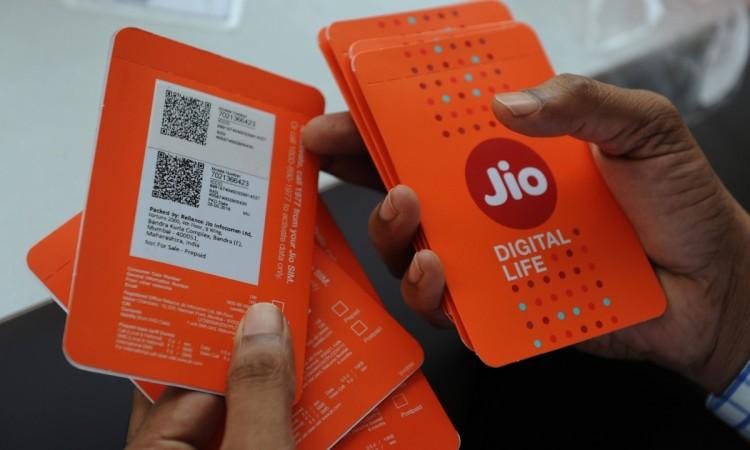
But getting to the eKYC verification part wasn't easy at all. People had to stand in queues for hours to get the Jio SIM cards, which offered free 4G data and voice calls for three months last year. It practically took months for Jio to balance demand and supply of its Jio SIM cards.
During the preview phase of Jio, the company made sure it tested the network thoroughly. Started off as a three-month trial, Reliance Jio decided to extend the free offerings of data and voice calls to six months until March 2017. Reliance Jio is the only telecom operator in the world to have given such a long promotional offer without asking users to pay for anything.
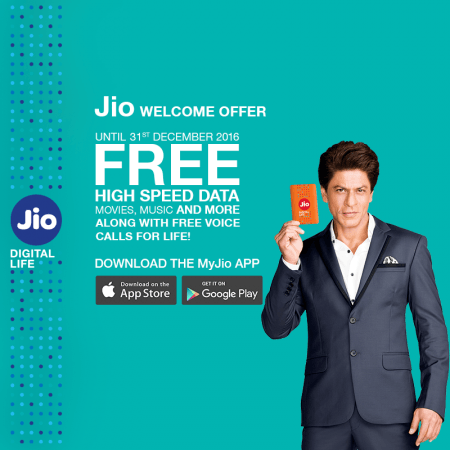
But the six months worth free services worked in Jio's favour. Millions of users joined the network despite facing speed issues and a huge number of call drops. It was practically impossible to connect to another number outside Jio's circle in one go during the test phase. In fact, if Jio hadn't given the service for free, it would have been highly unlikely to achieve such heights of success in such a short time.
Clearly, Jio's marketing stint did not sit well with the incumbents who turned against the new telco with full force, especially when Ambani extended the free trial from to 3 to 6 months last December. Airtel and Idea fought against Jio's free services and complained that such a doing violated TRAI's tariff orders and regulations. But Jio managed to complete its six months of free trial even as the telcos litigated the process.
But Jio's moves brought a welcoming change in the Indian telecom industry. Even though incumbents disapproved of Jio's methods, they followed on the new path laid down by the new telco. New tariffs with unlimited data, free voice calls at extremely low rentals were launched, and the end result was happy users.

Paying more than Rs. 200 for just 1GB data, which had to be used throughout the month became a thing of the past. In fact, Jio's free 4G data offering recorded 16,000TB data consumption on a daily basis, which superseded China Mobile and Vodafone Global's daily limits last year.
After six months of free services, April happened and Jio came up with the first subscription plan. Analysts remained skeptical about people paying for Jio's services after using the service for free for 6 months.
Jio's subscription was like heading to work or school after a long summer break. The best part was Jio knew that, so it launched Jio Summer Surprise. Jio launched Jio Prime membership programme for Rs. 99, which promised bundles of surprise offers in the coming months. First of many surprises was Summer Surprise, which offered three more months of free data and voice services for a minimal fee of Rs. 303.

Clearly, incumbents fought against Jio's Summer Surprise, and for a chance, managed to convince TRAI to force Jio's hands to withdraw the offer. It was done. But a new replacement, which was just as good, launched in the name of Dhan Dhana Dhan. The new scheme was same as the earlier one, but with a slightly higher tariff. Even with the increased tariff, incumbents had a hard time to match Jio's offers.
Thanks to these attractive tariffs, Jio beat the odds and managed to convert a majority of its free users to paid subscribers. It was a huge victory for Reliance Jio.
But Jio's journey in India was not made difficult by its rivals alone. In July, the company's database was hacked and details of 120 million Jio subscribers were leaked online via Magicapk.com. Details included mobile numbers, email ID, SIM activation date and Aadhaar details of some users.
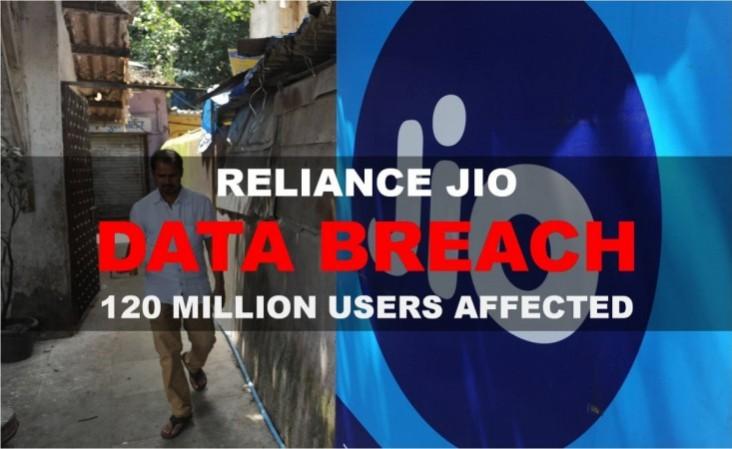
But the cyber attack did not haunt Jio for long. During the company's most recent annual general meeting, Ambani gave something substantial to hang on to. JioPhone, the most disruptive piece of hardware in the mobile industry, made its way to the market. The 4G VoLTE feature phone is essentially free, but attracts a Rs. 1,500 refundable deposit to avoid misuse.
JioPhone received 6 million bookings on the first day, and the pre-bookings had to be shut down temporarily due to an overwhelming demand. The deliveries of the JioPhone will begin soon and so will the bookings. It's like Jio is on a loop of demand. One year ago, it had a similar demand for Jio SIM cards and now it's for JioPhone.
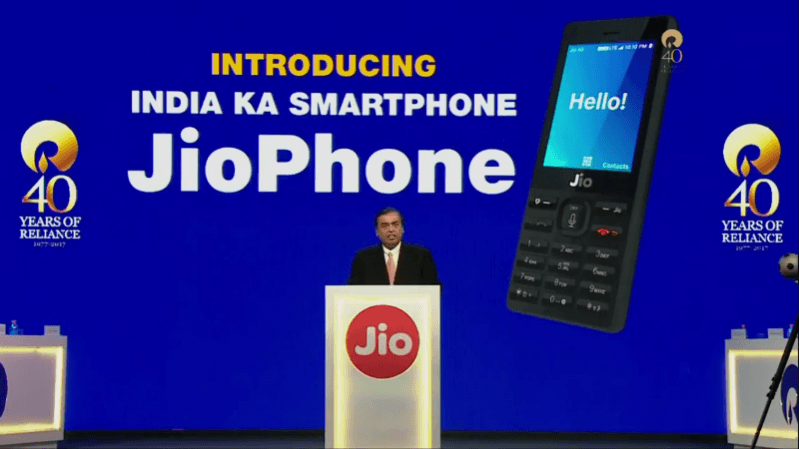
Challenges continue to present themselves to Jio. JioPhone bridges the gap between hardware and affordability, so millions of feature phone users can connect to the internet and do more with JioPhone. But rivals spun a new angle and blamed JioPhone for violating net neutrality.
What's next for Jio? There's a lot. In fact, the company could start by attending to the little details.
Reliance Jio's 4G network is still not an ideal choice for customers. Majority people use it as a secondary SIM card, a recent study revealed. This is not a good sign as people might fall back to their primary network in case Jio takes one wrong step.
In order to change that, Jio needs to be a network of the first choice. It has nailed on the tariffs front, and hopefully, it can do the same on the quality aspect. Network speed continues to remain a challenge for Jio despite TRAI's test charts placing the telco on top month after month. The ground reality begs to differ. The call connectivity has vastly improved over the past year.
Another important factor could simplify the tariff plans for Jio subscribers. There's a bit of confusion on which plan is suitable for users due to the bouquet of offers and tariffs available online. These are the little things Jio could work on to grow from a secondary SIM card to a primary one.
Overall, Jio's journey in India so far has been a remarkable one. But all eyes are on what's next for the most disruptive telco we've seen in decades. Jio 1Gbps broadband and Jio set top box are solid grounds to make tremors, but not at the cost of Jio 4G network and JioPhone.









!['Had denied Housefull franchise as they wanted me to wear a bikini': Tia Bajpai on turning down bold scripts [Exclusive]](https://data1.ibtimes.co.in/en/full/806605/had-denied-housefull-franchise-they-wanted-me-wear-bikini-tia-bajpai-turning-down-bold.png?w=220&h=138)



